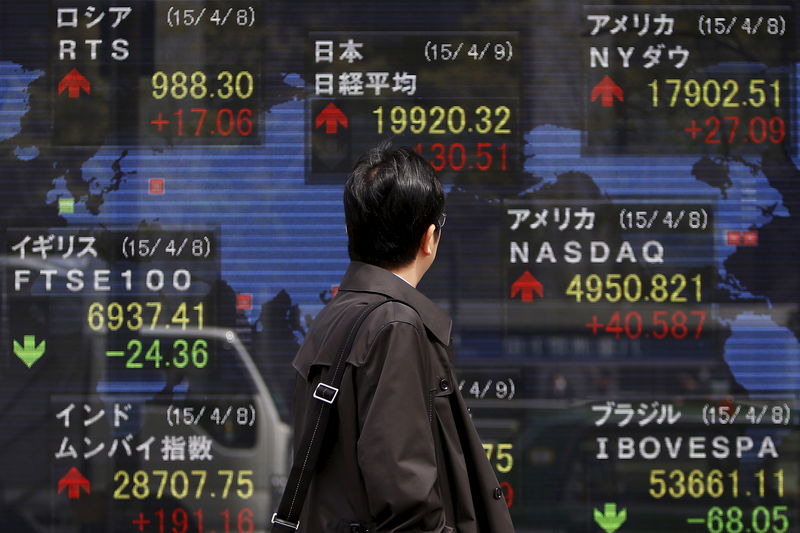Bill Gross warns on gold momentum as regional bank stocks tumble
Investing.com-- Most Asian stock markets fell on Friday tracking overnight losses on Wall Street, where renewed fears over U.S. regional banks rattled investor confidence, while Chinese shares led regional declines amid escalating trade tensions with Washington.
Most regional stock indices were set for weekly declines, mainly due to U.S. President Donald Trump’s fresh tariff announcement against China.
Wall Street slipped on Thursday after Zions Bancorp (NASDAQ:ZION) and Western Alliance Bank (NYSE:WAL) disclosed troubled loans, sparking fresh concerns about the quality of regional bank lending and the possibility of more hidden losses.
The KBW Regional Banking tumbled more than 6%, dragging the broader market lower and souring sentiment across Asia.
Asia stocks set for weekly declines, China leads losses
Japan’s Nikkei 225 fell 0.8% on Friday after sharp gains in the last two sessions, but the index was still set for a 0.6% weekly loss. The broader TOPIX index eased 0.7% for the day.
Singapore’s Straits Times Index lost 0.5%, on track for over 2% weekly drop.
Australia’s S&P/ASX 200 fell 0.8% after hitting a record high of 9,109.7 points in the previous session, when a weak jobs report boosted expectations of further policy easing by the Reserve Bank of Australia (RBA).
Chinese shares fell the most in the region, as trade tensions between Beijing and Washington remained heightened. Last week, Trump threatened to impose additional 100% tariffs on Chinese imports starting Nov. 1, in response to Beijing’s expanded curbs on rare earths exports.
The renewed friction has reignited fears of another trade war between the world’s two largest economies, after they averted higher tariffs earlier this year by cutting deals.
China’s blue-chip Shanghai Shenzhen CSI 300 dropped 1% on Friday, while the Shanghai Composite index fell 0.8%.
Hong Kong’s Hang Seng index slumped 1.4%, poised to lose nearly 3% this week.
S.Korea shares hit record high on US trade deal hopes
South Korea’s KOSPI briefly bucked the regional trend, rising as much as 1.2% to a fresh record high of 3,794.87 points early in the session. However, the index later gave up all gains as the broader caution weighed.
South Korea’s chief presidential policy adviser said on Thursday he was “optimistic” about talks to finalize a trade agreement with the U.S.
U.S. Treasury Secretary Scott Bessent also confirmed negotiations during a CNBC interview, saying, “We are about to finish up with Korea."
Seoul and Washington are reportedly working to ease disputes over tariffs and supply chain cooperation, particularly in the semiconductor and electric vehicle sectors.
